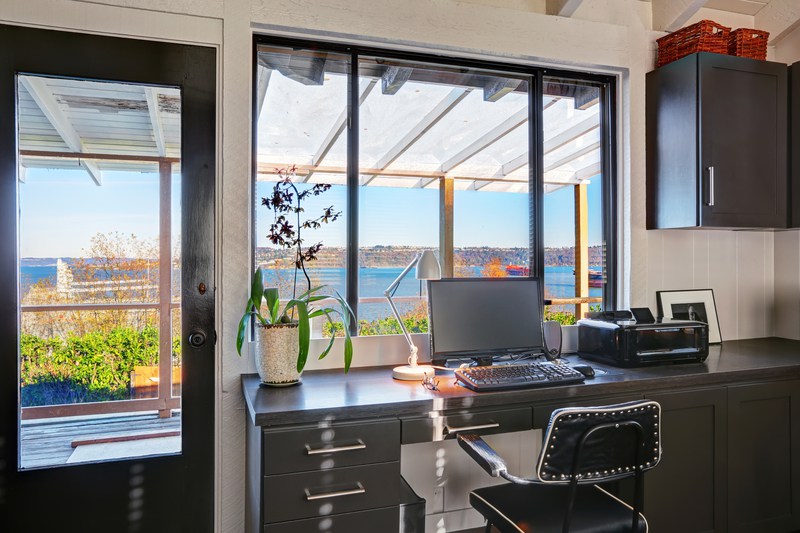According to a new study by Deloitte, one in four people in Switzerland works as a freelancer and another 25% would like to next year. Technology and the internet are the main drivers behind the trend. The shift to knowledge intensive careers is allowing greater mobility. Why not work from here? – © Grantotufo | Dreamstime.com 28% already work at least half a day a week from home, a percentage that is likely to rise as companies adapt and create cowering spaces. The study surveyed 1,000 Swiss workers and found that one third of the 25% who were currently working as freelancers were doing it full time. The common types of work were consultancy, IT, design and editorial. There has also been an increase in co-working spaces. These are places where independent people come together to work. Some charge on an hourly basis others have different models. Deloitte says there are 50 spaces like this across Switzerland. So how does Switzerland compare to the US? Most of web-based networking tools like Linkedin began their lives in the US so it would come as no surprise if it was ahead of the rest of the world. A survey done by the Freelancers Union in the US, claims there are 53 million, or 34% of the US workforce making all or part of their living working as freelancers. This is quite a bit higher than the Swiss rate of 25%. Overall US freelancers are pleased with the switch.
Topics:
Investec considers the following as important: Business & Economy, Editor's Choice, Freelancing in Switzerland, Swiss Life
This could be interesting, too:
investrends.ch writes Schweizerinnen und Schweizer blicken mit Sorge auf Pensionierung
investrends.ch writes Swiss Life bleibt nach neun Monaten im Wachstumsmodus
investrends.ch writes Swiss Life gewinnt in der Vermögensverwaltung stark dazu
Investec writes The global brands artificially inflating their prices on Swiss versions of their websites
According to a new study by Deloitte, one in four people in Switzerland works as a freelancer and another 25% would like to next year.
Technology and the internet are the main drivers behind the trend. The shift to knowledge intensive careers is allowing greater mobility.

Why not work from here? – © Grantotufo | Dreamstime.com
28% already work at least half a day a week from home, a percentage that is likely to rise as companies adapt and create cowering spaces.
The study surveyed 1,000 Swiss workers and found that one third of the 25% who were currently working as freelancers were doing it full time. The common types of work were consultancy, IT, design and editorial.
There has also been an increase in co-working spaces. These are places where independent people come together to work. Some charge on an hourly basis others have different models. Deloitte says there are 50 spaces like this across Switzerland.
So how does Switzerland compare to the US?
Most of web-based networking tools like Linkedin began their lives in the US so it would come as no surprise if it was ahead of the rest of the world.
A survey done by the Freelancers Union in the US, claims there are 53 million, or 34% of the US workforce making all or part of their living working as freelancers. This is quite a bit higher than the Swiss rate of 25%. Overall US freelancers are pleased with the switch. 77% said they earned the same or more than did before they started freelancing. One freelancer who was interviewed said: “There are more avenues available to find work, to make contacts, to connect with others, etc. thanks to technology and its ability to network.”

© Irina88w | Dreamstime.com
Common reasons for choosing to freelance are to gain flexibility and work in ways more conducive to creativity. One said that: “creativity can be difficult to find in an office scene.”
Many US millennials (under 35) have spent their entire careers as freelancers. 38% of this group are freelancing.
Fast Company offers 8 ways to make working from home more efficient in the video below:
For more stories like this on Switzerland follow us on Facebook and Twitter.
